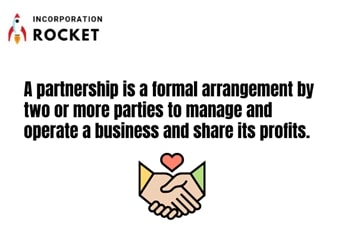Starting An Online Business in 2022: An Analysis
Starting an online business is accompanied by a range of benefits. Entrepreneurs are able to work from home, set their own hours, focus on their chosen niche, and are typically able to avoid substantial startup costs. But according to research, 90% of startups fail. 21.5% of startups fail in the first year, 30% in the second year, 50% in the fifth year, and 70% in their 10th year.
These statistics affect all businesses, including online businesses. Technology has offered opportunities for small business owners to compete with larger companies without the need of a physical storefront, but competition levels are at an all-time high which does prove to be an obstacle. To prevent failure, entrepreneurs need to equip themselves with tips, tricks and tools before starting their new venture. This article will explore what entrepreneurs need to know before starting an online business.

1. Form a business idea
Many entrepreneurs aim to start an online business without a firm idea and this may prove the business to not be viable. The idea created may also not be at the level required to break into the competitive market. For business owners to successfully ask themselves:
- “Why am I doing this?” Every business needs to have a mission and purpose. Entrepreneurs have to be prepared to follow the mission and purpose as the business progresses and expands.
- “Am I leveraging my strengths?” Entrepreneurs need to be sure that they have the skills and abilities to handle the new business.
- “Will I be solving a problem?” Entrepreneurs need to be sure that their business idea will be filling a gap in their chosen market. If their market has competition, which it likely does, entrepreneurs need to be sure that their product is unique and offers something that other products don’t.
- “Can the business function solely online?” Businesses, like online learning, are able to function solely online. But e-Commerce businesses require physical shipping and distribution, and may require a physical location if the demand increases.
If the entrepreneur has considered all of this and believes that the idea and concept is viable and able to offer something that has not been offered as of yet, entrepreneurs are able to move to the next step.
2. Validating the idea
Firstly, entrepreneurs need an MVP. A minimum viable product is the most basic functional version of a product. The MVP should encapsulate all the basic features needed to solve the problem it was designed to solve. To validate this, owners should ask themselves:
- Are people willing to pay?
- Are investors willing to invest?
- Would the owner be able to profit off of the product in a few years?
Other ways to gain validation are by:
- Considering customer reviews. Entrepreneurs should research their competitors’ reviews to gauge customer interest.
- Setting up a landing page. Landing pages, which are different to a full website, will allow entrepreneurs to offer a preview of their potential business. The landing page should contain a rundown of features, pricing, a release window, and an email subscription signup prompt.
Surveying potential customers. This can be done by interviewing actual customers, or by conducting online services.
3. Form a business plan
Businesses need to ensure that there is always a plan in place to execute whatever and whenever needed. This allows businesses to have a safety net of sorts. At the beginning stage, entrepreneurs should form a lean business plan which would roughly outline the business’ business plan. To form a business plan, entrepreneurs should:
- Conduct a market analysis alongside a SWOT analysis. This would confirm the market the business should enter and would identify the competition within the market. It is also able to assist by determining pricing models and distribution methods.
- Consider funding and success metrics to determine whether the business is on the right track.
4. Establish the website
This is one of the most important steps to forming an online business seeing that the website reflects the products, services, and mission of the business. Because there are a range of options regarding hosting, platform and design, entrepreneurs need to make a range of smart and informed decisions.
Online businesses also have the option to host their own site, or to use an online marketplace. By being the host of your own site, business owners are able to retain control. They will be able to customize almost every aspect of the eCommerce site to create the best user experience possible. Business owners need to keep in mind that if they use this option they do not have to pay a designer to build their site. Entrepreneurs have the option of using website builders which are cheaper, and sometimes even free.
Entrepreneurs are also able to use a marketplace. Examples of these are eBay, Etsy, Amazon, Airbnb and Fiverr. Using this option, entrepreneurs are given peace of mind regarding design because the site offers a pre-made template for the online business. But business owners need to keep in mind that by using this option will require them having to pay a fee to the site.
5. Register the business
Entrepreneurs need to be informed of the online business laws which cover the distribution of the customer’s personal information, as well as other privacy and intellectual property regulations. Once this has been done, the entrepreneur would have to select the business’ legal structure. Business owners have the options between sole proprietorships, LLCs, general partnerships and more. Incorporation Rocket offers information on business entity types and state requirements for entrepreneurs.
The takeaway
To form a successful and profitable online business, entrepreneurs need to have a clear vision. By having a well-thought-out idea, validating the idea, having a business plan and established website, they would be off to a good start.
